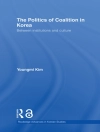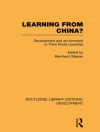Thermoelectric materials have received a great deal of attention in energy-harvesting and cooling applications, primarily due to their intrinsic low cost, energy efficient and eco-friendly nature. The past decade has witnessed heretofore-unseen advances in organic-based thermoelectric materials and devices. This title summarises the significant progress that has been made in the molecular design, physical characterization, and performance optimization of organic thermoelectric materials, focusing on effective routes to minimize thermal conductivity and maximize power factor. Featuring a series of state-of-the-art strategies for enhancing the thermoelectric figure of merit (ZT) of organic thermoelectricity, and highlighting cutting-edge concepts to promote the performance of organic thermoelectricity, chapters will strengthen the exploration of new high-ZT thermoelectric materials and their potential applications. With contributions from leading worldwide authors, Organic Thermoelectric Materials will appeal to graduate students as well as academic and industrial researchers across chemistry, materials science, physics and engineering interested in the materials and their applications.
Table of Content
Introduction;
Thermoelectric Transport Theory in Organic Semiconductors;
Synthesis of Organic Thermoelectric Materials;
PEDOT-based Thermoelectrics;
Carbon Based Thermoelectric Materials;
Organic Hierarchical Thermoelectric Materials;
Conducting Polymer-based Organic–Inorganic Thermoelectric Nanocomposites;
Thermoelectric Materials by Organic Intercalation;
Flexible Organic-based Thermoelectric Devices
About the author
Dr. Ming He received his B.S. in Materials Science and Engineering from East China University of Science and Technology in 2005, and received his Ph.D. in Polymer Chemistry and Physics from Fudan University in 2011. He was a visiting student at Iowa State university (2009-2011). He worked as a Postdoctoral Fellow at Fudan University (2011-2013) and Georgia Institute of Technology (2013-2017). In July 2017, he became a Research Scientist at Georgia Institute of Technology. His research interests include conjugated polymers, organic-inorganic hybrid semiconductors, solar cells, and thermoelectricity.












